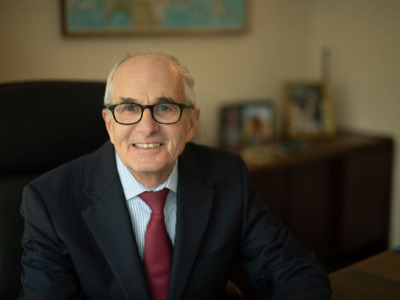At President Barack Obama’s recent White House Rural Economic Forum in Iowa he said: “America is going to come back from this recession stronger than before…. It’s going to start on the ranchlands and farms of the Midwest, in the workshops of basement inventors, in the storefronts of small business owners.”
The President was joined by several members of his Cabinet. Agriculture Secretary Tom Vilsack was the featured member, joined by Interior Secretary Ken Salazar, Transportation Secretary Ray LaHood, HUD Secretary Shaun Donovan, Small Business Administrator Karen Mills and Council of Environmental Quality Chair Nancy Sutley. It was an important Forum with 100 invited guests to discuss rural policy. The Forum was intended to highlight the Administration’s strong commitment to and agenda for rural America.

Secretary of State Hillary Clinton and USAID Administrator Dr. Raj Shah were not at the Forum, but both have emerged as strong supporters of agriculture, from increased research to the Green Revolution. They are helping broaden agriculture’s base of support.
Clinton and Shah see the direct link between agriculture, economic development, human advancement and global stability. They simply get it!
On August 11, 2011, Secretary Clinton addressed the International Food Policy Research Institute. Here is what she said about the Green Revolution with a special focus on Africa and Somalia:
“…A severe drought has put more than 12 million people in danger of starvation….while we hurry to deliver life-saving assistance, we must also maintain our focus on the future by continuing to invest in long-term food security….Just as the Green Revolution made such a difference, what we are trying to do now is to get back to what worked, then focus on the basics…provide better seeds for crops…help herders whose natural desire is to hold on to their livestock.
“All of this is in the nature of the Green Revolution, which made such a difference. But then the world moved away thinking our work was done. And in fact, it is not done.”
This was not the first time that Secretary Clinton discussed the importance of agriculture. Each year, when she announces the World Food Prize winners, the Secretary talks about technology and the link between agriculture and international affairs.
At USAID, Dr. Shah, a medical doctor, has issued a publication entitled Agriculture Biotechnology for Development. He has pointed out that the President’s initiative to “Feed the Future grew from a recognition that strengthening global food security required a more comprehensive approach than providing food aid.” On a different occasion, he said, “The world must increase its productive yields over the next decade, that much is clear.”
The views of Clinton and Shah on agriculture are not just important to the international community. They provide a vital perspective as we move into a difficult farm bill and appropriations process with more competition for every federal dollar. Their statements justify our nation’s expenditures on agriculture research and make it clear that our commitment to agriculture is not just a nostalgic reflection of the past. Agriculture remains a key to our current U.S. economy, balance of payments and position of leadership around the globe.
Finally, the statements of Clinton and Shah reinforce the dedicated efforts of Secretary Vilsack, who has spoken many times about the importance of agriculture to U.S. strength, both internationally and at home.
Secretary Vilsack started this charge for an international perspective of agriculture at the Outlook Forum on February 24 when he said: “We're going to focus on making sure that there's a greater acceptance and appreciation of some of the science that will allow not just American farmers to be more productive but the world's farmers to be more productive. There has to be an embracing in all parts of the globe of the opportunities that science presents to increase productivity worldwide.” He specifically went on to reference bilateral efforts and “multilateral institutions such as the UN food agencies, the G20, and APEC” which can serve “to identify where there are vulnerable populations and to respond appropriately and encourage nations to pursue sound policies.”
In order for the House and Senate Agriculture Committees to receive the resources they need for the upcoming farm bill, the “Super Committee” and Budget Committees will have to hear from a large range of interests that agriculture is a national priority. When Secretary Clinton and Dr. Shah join Secretary Vilsack in saying that agriculture research is important to the world, it cannot be seen as a parochial statement, but rather as a pronouncement which deserves the attention of the House and Senate Budget Committees.
There are other federal officials who could also offer important perspectives on agriculture. Treasury Secretary Tim Geithner or the Chairman of the President’s Council of Economic Advisors could make a valuable contribution to the farm bill process if they were invited to address the importance of food and agriculture to our national economy.
In recent years, American farmers have been getting a smaller and smaller percentage of their income from the government. We need to be careful in the upcoming discussion not to unilaterally dismantle agriculture in comparison to other countries and harm a major sector of the U.S. economy.
As President Obama noted recently in Iowa, “You don’t have a more passionate advocate for farming communities in rural America than Tom Vilsack.” Secretary Clinton, Administrator Shah and other key leaders can help Secretary Vilsack, and all of us, prevail in the fight ahead by lending their credibility and perspectives.
For more news go to www.agri-pulse.com
#30

